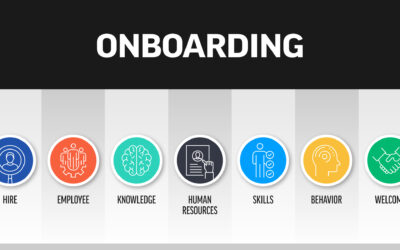Where did the time go? It seems like summer began just yesterday …
As summer winds to a close and the excitement of a new school year builds, it’s easy to get swept up in the rush of buying school supplies, meeting new teachers and planning your daily routines. During this busy time, there’s a crucial element that often gets overlooked: personal cybersecurity.
In today’s digital age, ensuring parents and teens are protected by a personal cyber bullying policy is just as important as having the right textbooks and school clothes. This comprehensive guide will help you understand what personal cybersecurity is, what it does, and how it can be a vital shield against the growing threat of cyberbullying.
What is cyberbullying?
The federal government website, Stopbullying.gov, which is managed by the U.S. Department of Health and Human Services, defines cyberbullying as bullying that occurs through digital devices like cell phones, computers and tablets. It can happen through SMS, text messages, apps or online platforms, such as social media, forums or gaming communities where content can be viewed, shared, or participated in by others.
Cyberbullying involves sending, posting, or sharing negative, harmful, false or mean content about someone else. It also may include sharing personal or private information about someone, leading to embarrassment or humiliation. In some cases, cyberbullying can cross the line into unlawful or criminal behavior.
The most common places where cyberbullying occurs include social-media platforms like Facebook, Instagram, Snapchat and TikTok; text messaging and messaging apps on mobile or tablet devices; instant messaging, direct messaging and online chatting over the internet; online forums, chat rooms and message boards such as Reddit; and email, and online gaming communities.
Personal cyberinsurance vs. cyber bullying coverage
Personal cyberinsurance and cyber bullying coverage differ in their scope and focus.
Personal cyberinsurance is broad, offering protection against a wide range of cyber-related risks like identity theft, financial fraud and data breaches. It’s designed to help individuals recover from various cyberincidents that can lead to financial loss or personal harm.
Cyberbullying focuses on the emotional, psychological and financial impacts of online harassment, particularly for children and teenagers. This coverage includes support for mental health services, legal fees for pursuing action against bullies, and even costs related to changing schools or hiring tutors if bullying disrupts a child’s education. While personal cyberinsurance covers a variety of online threats, cyber bullying coverage zeroes in on the unique challenges posed by online harassment, providing tailored support to help victims recover and protect themselves from further harm.
Guiding families in selecting the right coverage
When advising families on cyber bullying insurance, it is essential to ensure they fully understand what is covered under their policies, including any limitations or exclusions. A comprehensive explanation and comparison of the differences in coverage, costs, deductibles and the quality of services provided by the carrier are crucial bits of information to enable families to make informed decisions about their insurance options.
It is equally important to educate clients about cyberbullying itself. This education should cover how to recognize the signs of cyberbullying, how to report incidents and how to effectively use available resources to combat it. By being well-informed about both their insurance coverage and the nature of cyberbullying, parents can better protect their children and themselves against the emotional and financial toll that cyberbullying inflicts. This proactive approach not only provides financial safeguards, but also empowers families to address cyberbullying with the knowledge and resources necessary to mitigate its impact.
Make cybersafety a priority
As students head back to school, ensuring their safety now extends beyond the classroom and into their digital lives.
Cyberbullying coverage is a vital aspect of personal cybersecurity, offering crucial protection and peace of mind for both parents and teens in a world where online interactions are as common as face-to-face ones, and the threat of cyberbullying cannot be ignored.
The psychological impact of online harassment can be just as damaging, if not more so, than traditional bullying. Having a safety net in place, such as a comprehensive cyber bullying policy, is essential.

Theophilus Alexander
Theophilus W. Alexander has served in both houses of the New York State Legislature. He worked as a legislative analyst for Hon. New York State Sen. Samra G. Brouk, D-55, and he served at the New York State Assembly, as a policy analyst with New York Assembly Program & Counsel. Theo received his Bachelor of Arts degree in Politics from Ithaca College in Ithaca, N.Y.






